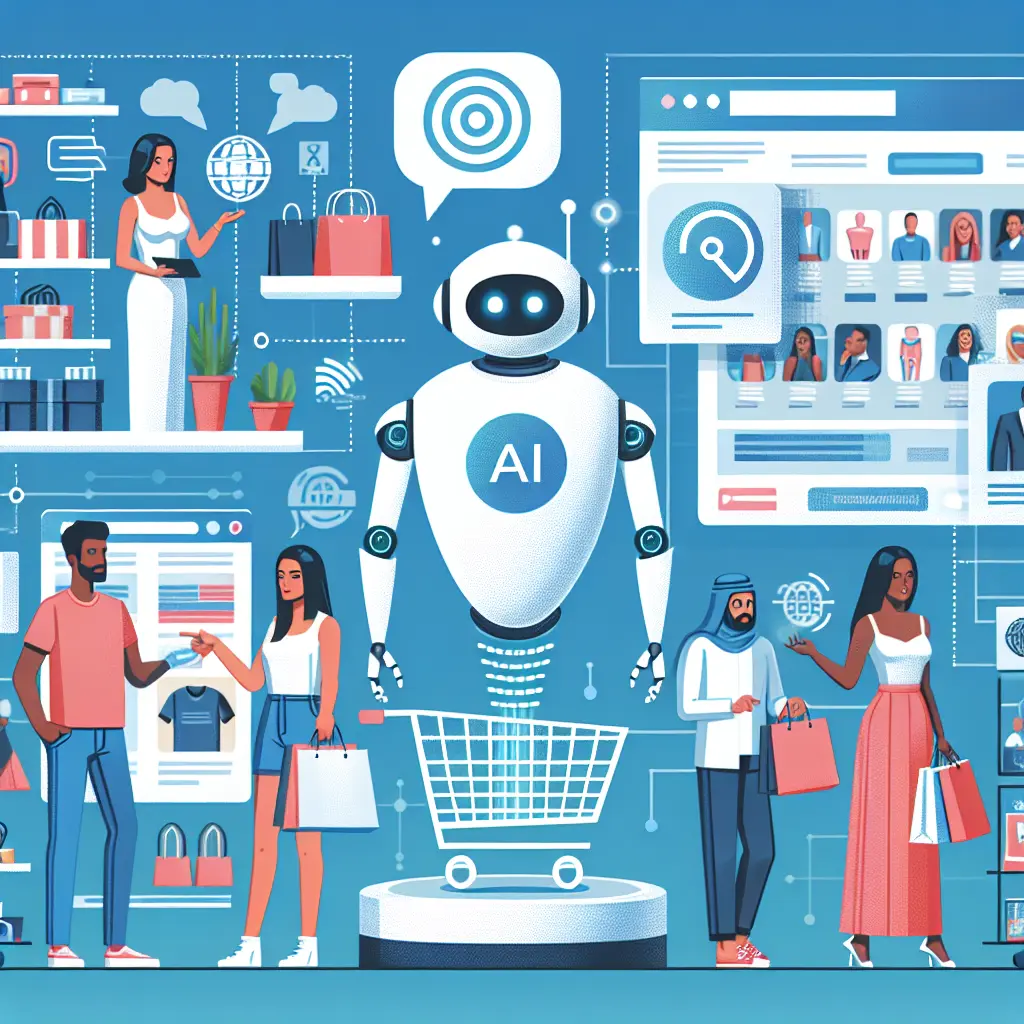
In the ever-evolving landscape of online retail, Artificial Intelligence (AI) has emerged as a game-changer, transforming how businesses interact with and serve their customers. The integration of AI in ecommerce is not just enhancing customer experience; it's redefining it. From AI-driven personalization to sophisticated AI chatbots, the potential of AI to boost ecommerce operations is immense. As we delve into the role of AI in enhancing ecommerce customer experience, let's explore how these technologies are being applied and the trends shaping the future.
The Rise of AI in Ecommerce
AI technology in online shopping is revolutionizing the industry by making processes faster and more efficient. AI tools for ecommerce such as machine learning algorithms analyze vast amounts of data to predict shopping behavior and preferences. This capability is not just theoretical; for instance, AI recommendations engines are now commonly used to suggest products that customers are more likely to purchase based on their browsing history.
One of the most visible applications of AI in ecommerce is through AI chatbots. These bots provide round-the-clock customer service, handling inquiries and resolving issues instantly. This 24/7 availability not only enhances customer satisfaction but also streamlines operations and reduces human error.
AI Personalization in Ecommerce
Personalization is at the heart of modern ecommerce. According to the latest strategies for B2B Ecommerce Personalization in 2024, businesses are increasingly leveraging AI to create personalized shopping experiences at scale. This involves using AI to analyze individual customer data and provide tailored recommendations, thus enhancing customer experience with AI.
Recent Trends and News
However, as with all technologies, AI in ecommerce comes with its own set of challenges and developments:
Cybersecurity Concerns: Recent incidents like the Magento payment system hack highlight the vulnerabilities in ecommerce platforms. As ecommerce sites become increasingly reliant on AI and digital systems, ensuring robust cybersecurity measures is crucial.
Environmental Impact: A report on the spike in pollution by warehouses due to increased ecommerce activity prompts a discussion on sustainable practices within AI-driven logistics and supply chain management.
AI Tools Development: The introduction of new ecommerce tools on July 25, 2024, showcases the continuous innovation in AI technologies aimed at improving ecommerce platforms’ efficiency and user experience (UX).
AI-Driven Ecommerce Trends
Staying abreast of AI-driven ecommerce trends is essential for businesses looking to remain competitive. Research confirms that Google AIO Keyword Trends are shaping SEO practices, influencing how ecommerce platforms optimize their content for better visibility and engagement.
Moreover, collaborations like Lingpad X Gorgias demonstrate the power of combining AI with human expertise to overcome challenges such as language barriers in customer service, thus significantly enhancing the effectiveness of ecommerce support agents.
Machine Learning in Ecommerce
The use of machine learning in ecommerce extends beyond customer interaction. It plays a pivotal role in inventory management, demand forecasting, and price optimization. By analyzing past sales data and market trends, AI can make accurate predictions that help businesses manage their resources more efficiently.
Challenges and Considerations
While the benefits are significant, deploying AI in online retail is not without its challenges. For instance, the recent hacking incident involving USPS text scammers shows how sophisticated cyber threats have become. Ecommerce businesses must prioritize securing their AI systems to protect both their data and their customer's information.
Additionally, there's an ongoing concern about the depersonalization that might come with overly relying on AI for customer interactions. Balancing AI automation with a human touch is crucial to maintaining a connection with customers and ensuring they feel valued.
Looking Ahead
As we look to the future, the role of AI in enhancing ecommerce customer experience only seems set to expand. With advancements in AI technology and more insights into consumer behavior, ecommerce platforms can expect to offer even more personalized and engaging shopping experiences.
For those interested in further exploring this topic, sources such as Search Engine Journal provide invaluable insights into the latest trends and strategies in ecommerce SEO and marketing. Similarly, staying updated with new tools and developments can help businesses leverage AI effectively.
Conclusion
In conclusion, integrating AI in ecommerce is transforming the industry by enhancing customer experiences, optimizing operations, and driving sales. As we continue to navigate this digital age, embracing AI-driven solutions will be crucial for ecommerce businesses aiming to thrive in an increasingly competitive market.
Thank you for joining me on this exploration of how AI is reshaping ecommerce. As we move forward, let's keep our eyes on these innovative technologies that promise not just to improve business outcomes but also to enrich the shopping experiences of customers worldwide.
Maxwell Harper